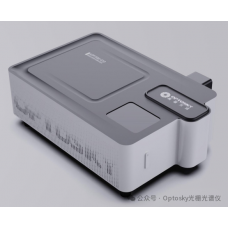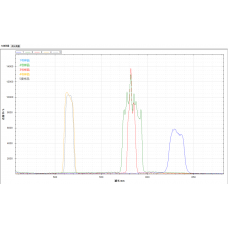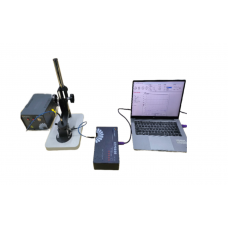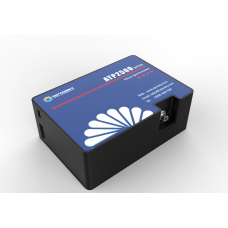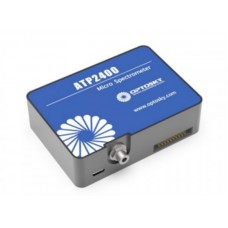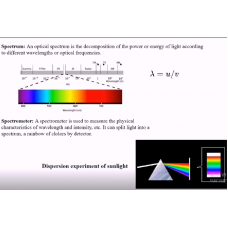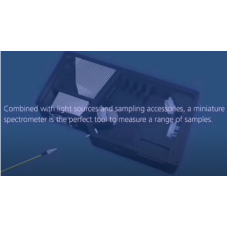- Optosky ATP2000P has a low-noise, high-performance, and cost-effective. The sensor used 2048 pixel CCD responding from 200-1100 nm.
- ATP2000P is ideal for fast-detect because of high A/D converter frequency and the high-speed data transmission. In the memory chip is available for some solid programmed algorithms that can improve the performance, such as wavelength calibration coefficient, linearity coefficient. It transfers spectrum to PC through USB 2.0 or RS232 interface. ATP2000P operates with a single +5VDC supply supplied from USB or duo-pin interface.
- ATP2000P has free SDK for customers self-developed, Optosky support C++, C#, Labview and Linux system SDK, which is very convenient for OEM customers to design solutions.
| Detector | |
| Detector type | Linear COMS |
| Effective pixels | 2048 |
| Pixels dimension | 14μm×200μm |
| Detector model | Hamamtsu S11639 |
| Sensitivity | 1300 V/(lx·s) |
| Dark noise | 0.4mVrms |
| Optical parameter | |
| detect range | 200-1100 nm |
| Focal distance | 40 mm for incidence / 60 mm for output |
| Optical resolution | 0.1-3 nm |
| Incident Interface | SMA905 connector |
| Signal-to-noise | >600 : 1 |
| Dynamic range | 5000 |
| Working temperature | -10°c to + 50°c |
| Numberical aperture | 0.11 |
| Working humidity | < 90%RH |
| Trigger | YES(IN and OUT) |
| Cooling temperature | uncooled |
| Full Well | NA |
| Scanning rate | < 1 kfps |
| Wavelength range | 200-1050 nm, 350-800nm, 300-1100nm, 180-410nm, 780-1100nm |
| Physical parameters | |
| Dimensions | 102×72×36.3 mm^3 |
| Weight | 0.38kg |
| Sealing | Anti-sweat |
| Optical configuration | |
| Optical design | f/4 crossed asymmetrical Czerny-Turner |
| Incident slit | 50 μm (5, 10, 25, 100, 150, 200 um are optional) |
| Electrical parameter | |
| A/D conversion resolution | 16 bit |
| Integration time | 1 ms - 80 s |
| Interface | USB 2.0 |
| Supply voltage | DC4.5 to 5.5 V (type @5V) |
| Operating current | 170mA@Typ. |
| Storage temperature | -30°C to +70°C |
| Operating temperature | -10°c to + 50°c |
- spectral region: 200-1000 nm
- Spectral resolution: 0.2-5 nm
- Optical configuration: crossed Czerny-Turner
- Linear low noise CMOS detector with 2048 pixel
- Integration times: 0.1ms-256s
- Supply voltage: DC 5V (USB Power)
- 16 bit, 2MHz A/D Converter
- Interface: USB2.0 (High speed)
- 20-pin connector for interfacing to external products
- LED spectrophotometer
- Fluorescence
- Biochemical analyzer
- Transmittance measurement
- Reflectance measurement
What are Low Cost spectrometer from Optosky?
ATP1XXX & ATP2XXX belongs to low cost spectrometer.
ATP1000 350-1100nm, replace STS
ATP1010 180-1100nm, replace STS and UV enhanced
ATP1012 Xenon lamp driver built-in upgrade from ATP1010
ATP2000P 180-1100nm, higher performance than USB2000+
ATP2000H high speed rate up to 2K or 4K Hz
ATP2002 Xenon lamp driver built-in upgrade from ATP2000P
ATP2100 highest SNR, wave shape can be edited
ATP2110 Water quality analysis spectrometer
ATP2200 180-1100nm, compete with Flame
ATP2400 ultra thin, smaller than USB2000+ performance higher, replace USB2000+
How many topology structure of optical path for a spectrometer?
There are commonly divided into 4 types of optical path, including crossed C-T, M-shape C-T, concave grating optical path, transmittance grating opitcal path.
Crossed C-T: ATP2000P,ATP2002, ATP2400, ATP1010, ATP5020P, ATP5040, ATP6500
M-shape C-T: ATP3030, ATP3034, ATP3330/4 ATP5030, ATP5034, ATP5330/4
Concave grating: ATP4230, ATP4020, ATP4050, ATP4070
let's see the M-shape optical path looks like a number "3", so our models uses the 3rd number "3" to indicate M-shape optical path models.
In generally, topology structure can decide resolution, sensitivity, stray light, and size of a spectrometer.
Crossed C-T topology structure employs better sensitivity and compact size.
M-shape C-T employs higher resolution and better stray light.
Concave grating optical path employs high stray light.
Which modular spectrometer can replace Ocean Insight FLAME-S-VIS-NIR-ES?
Optosky ATP2000 have same performance as Ocean Insight FLAME-S-VIS-NIR-ES, with integration time 1ms-65s, 2048 pixels.

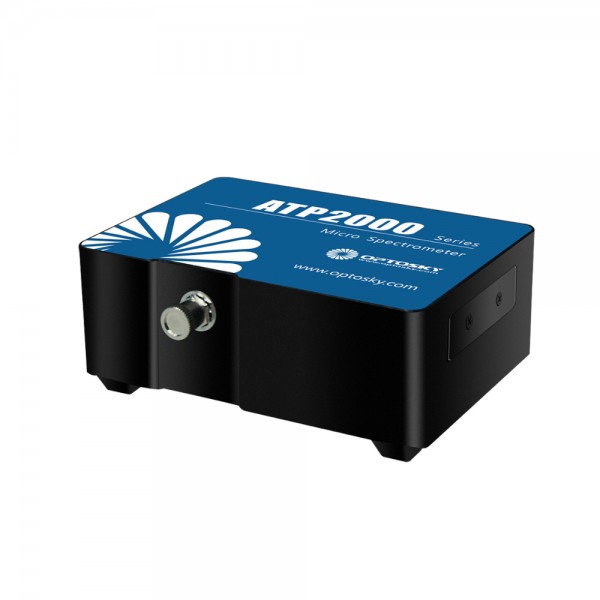






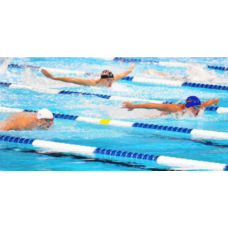
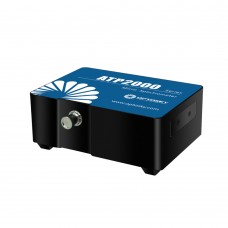
-228x228.png)
